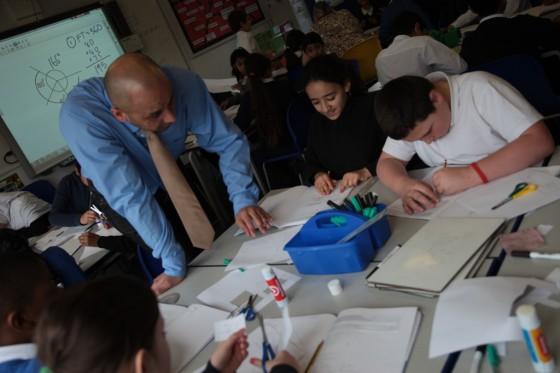
We teach the right things efficiently.
The curriculum for Paradigm Trust:
- prepares pupils to lead fulfilling lives and to play an active, positive and productive role in our democratic society.
- is based on the National Curriculum;
- enhances pupils’ spiritual, moral, social and cultural development;
- promotes fundamental British values;
- makes provision for pupils to develop their literacy and numeracy skills so that they can access all areas of the curriculum;
- is responsive to both the current and future needs of pupils;
- accommodates future examination and assessment reforms;
- ensures that pupils will be equipped with the correct qualifications to gain access to future study and employment;
- is well organised and staffed appropriately throughout all year groups;
- prioritises all year groups equally;
- meets the needs of learners with special educational needs and disabilities;
- encourages pupils to master skills and deepen knowledge and understanding;
- prepares pupils for an ever changing, wider world of work;
- encourages the use of environments and expertise beyond the classroom including immersive learning;
- provides interesting and varied extra-curricular activities and educational visits to broaden pupils’ experiences;
- has local, national and international dimensions.
- ensures that pupils have the background knowledge to interpret new information from sources including texts and images.
Early Years
Pupils in reception are taught in accordance with the Department for Education’s early years foundation stage guidance. Topics are chosen to reflect pupil interests and needs.
Further information relating to curriculum is available on request – please contact the academy.
How are reading and phonics taught?
Phonics is the system of learning to read by using sounds. At Old Ford, the Read Write Inc. programme is used to teach phonics. From nursery, pupils are introduced to the first 30 sounds and taught to blend these sounds into words. In reception more sounds are introduced and pupils read from books at their level daily. This continues throughout KS1 and KS2 with daily phonic lessons and daily guided reading with comprehension to test pupils understanding. Reading good quality literature to pupils provides ideas for twice weekly extended writing lessons. Each class has a book area with attractive books that appeal to all abilities within that class and are available to take home. The Shared Reading text which will be studied this year are
| Year | Autumn 1 | Autumn 2 | Spring 1 | Spring 2 | Summer 1 | Summer 2 |
|---|---|---|---|---|---|---|
| 1 | The Gingerbread Man Little Red Riding Hood The Little Red Hen | The Brave Little Tailor The Frog Prince Jack and Magic Harp | Sleeping Beauty Dick Whittington The Horse and the Bell | Peace at last - Jill Murphy The Tiger Who Came to Tea - Judith Kerr | Robin Hood and the Silver Trophy Room on The Broom - Julia Donaldson | The Emperor of Absurdia - Chris Ridell Alice in Wonderland - Usborne |
| 2 | Peter and the wolf Hansel and Gretel - Usborne | Around the World in Eighty days - Jules Verne | The Thief, the Fool and the Big Fat King - Terry Deary | Diary of a Killer Cat - Anne Fine | Cliffhanger - Michael France | The Iron Man - Ted Hughes |
| 3 | The Twits – Roald Dahl | The Little Vampire Angel - Angela Sommer- Bodenburg | Gangsta Granny - David Walliams | The Queen’s Nose - Dick King Smith | Toro Toro - Michael Morpurgo | Charlie and the Chocolate Factory - Roald Dahl |
| 4 | George’s Marvellous Medicine - Roald Dahl | How to Train your Dragon - Cressida Cowell | Matilda - Roald Dahl | The Indian in the Cupboard - Lynne Reid Banks | Emil and the Detective - Erich Kästner | The boy in the dress - David Walliams |
| 5 | Cirque du Freak - Darren Shan | Holes - Louis Sachar | Silverfin - Charlie Higson | The Secret Garden - Frances Hodgson Burnett | Prisoner of Azkaban - J.K Rowling | Goodnight Mr Tom - Michelle Margorian |
| 6 | The Enemy - Charlie Higson Romeo and Juliet - W. Shakespeare | The Enemy – Charlie Higson | Kensuke’s Kingdom - Michael Morpurgo | The Lion, The Witch and the Wardrobe - C.S.Lewis | The Witches - Roald Dahl | A Monster Calls - Patrick Ness |
Reading good quality literature to pupils provides ideas for Extended Writing lessons. Each class a book area with attractive books that appeal to all pupils within that class and are available to take home. We strongly encourage parents/carers to help foster a love of reading in their children. That is why we provide resources to achieve this aim.
Why reading is important:
- Reading helps you achieve your goals
- Reading will help you with different jobs and careers
- Reading will help increase your knowledge
- Reading will help you understand morals and how to behave
- Reading can inspire you
- Reading can make you laugh and make you happy
- Reading will help you improve your vocabulary
- Reading is fun
Download the Why Reading is Important leaflet.

